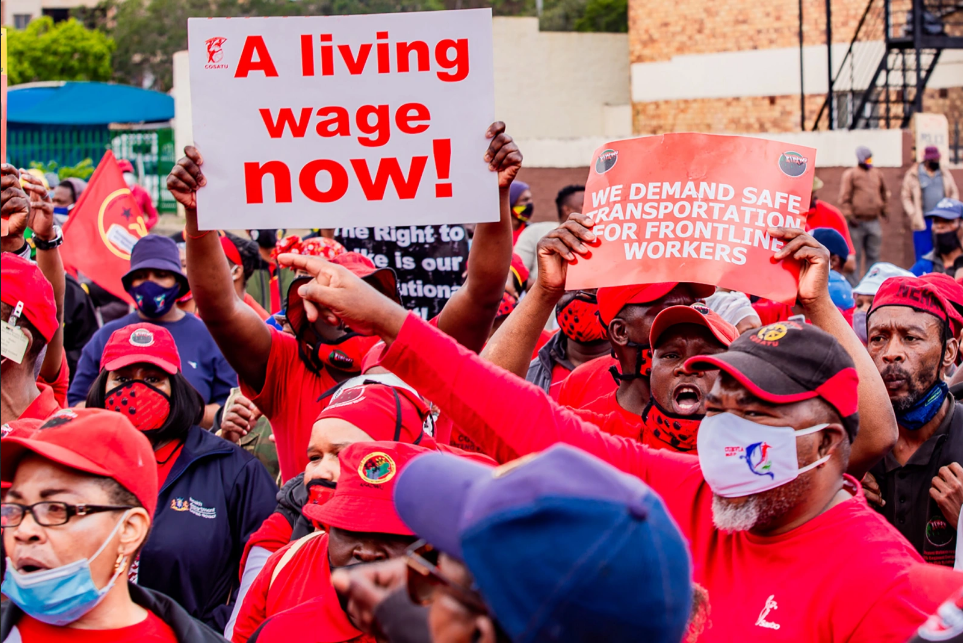THE National Education, Health and Allied Workers’ Union (Nehawu) has threatened action should the National Treasury fail to table suitable wage increases when it delivers its Medium Term Budget Policy Statement (MTBPS) on Thursday.
Nehawu is one of South Africa’s largest labour unions and represents nearly 280,000 members across both the public and private sectors.
In a media briefing on Tuesday, the labour union said that it would not accept ‘petty’ increases from the government and that it rejects the 1.5% pay increase tabled for public servants in the 2022/2023 financial year.
“Our congress has sent out a clear message to the government that we remain resolute in the rejection of the petty allowances in substitution for a real wage increase,” it said.
“We are a union of workers, whose basic reason for existing in the first place is to improve workers’ salaries, reduce the rate of exploitation and to improve the conditions of service for its members and public service workers in general.”
Data from the 2020 Budget shows that the average government worker remuneration passed R400,000 a year in 2019, with this figure heading towards the R450,000 mark in 2021. This is not spread equally across all public servants, but there has been a clear trend towards public servants being paid a lot more, in general.
Research conducted by market analytics group Intellidex at the end of 2020 found that using inflation-adjusted income bands, there has been a declining share of government personnel earning less than an inflation-adjusted R20,000 per month – from 85% of staff in 2006/07 to 48% in 2018/19 – and a rising share of staff earning above that figure.
In an analysis of the upcoming MTBPS, international banking group BNP Paribas said that it expects the National Treasury to continue to pencil in real growth contractions in public servants base pay over the medium-term. A ‘reprioritisation’ of existing spending to allow for this year’s gratuities will also be watched closely, it said.
However, economists have warned that the ongoing issue of wage increases could lead to further service delivery issues in South Africa.
“After several rounds of slashing the goods and services budget, further reprioritisation of expenditure may negatively affect service delivery, said Sanisha Packirisamy, an economist at Momentum Investments.
“Consequently, above-budgeted wage settlements continue to pose an upside threat to government expenditure,” she said.
- Business Tech

